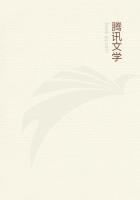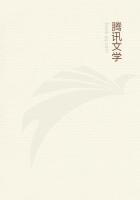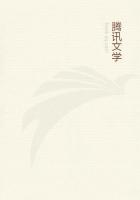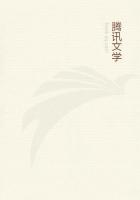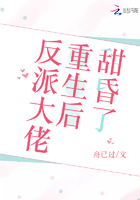She laughed again when he asked if she could see the people whom she could only hear.And once more she laughed when the sun had gone down, and the mooddin had come out on the Grand Mosque in the Metamar, and he asked if she could see the old blind man in the minaret, where he was crying, "God is great! God is great!""Can you see him, little one?" said Israel.
"See him?" said Naomi; "why yes, you dear old father, of course I can see him.Listen," she cried, ceasing her laughter, lifting one finger, and holding her head aslant, "listen: God is great! God is great!
There--I saw him then."
"That is only hearing him, Naomi--hearing him with your ears--with this ear and with this.But can you see him, sweetheart?"Did her father mean to ask her if she could _feel_ the mooddin in his minaret far above them? Once more she laid her head aslant.
There was a pause, and then she cried impulsively--"Oh, _I_ know.But, you foolish old father, how _can_ I?
He is too far away."
Then she flung her arms about Israel's neck and kissed him.
"There," she cried, in a tone of one who settles differences, "I have seen my _father_ anyway."It was hard to check her merriment, but Israel had to do it.
He told her, with many throbs in his throat, that she was not like other maidens--not like her father, or Ali, or Fatimah, or Habeebah;that she was a being afflicted of God; that there was something she had not got, something she could not do, a world she did not know, and had never yet so much as dreamt of.Darkness was more than cold and quiet, and light was more than warmth and noise.
The one was day--day ruled by the fiery sun in the sky--and the other was night, lit by the pale moon and the bright stars in heaven.
And the face of man and the eyes of woman were more than features to feel--they were spirit and soul, to watch and to follow and to love without any hand being near them.
"There is a great world about you, little one," he said, "which you have never seen, though you can hear it and feel it and speak to it.Yes, it is true, Naomi, it is true.You have never seen the mountains and the dangerous gullies on their rocky sides.
You have never seen the mighty deep, and the storms that heave and swell in it.You have never seen man or woman or child.Is that very strange, little one? Listen: your mother died nine years ago, and you had never seen her.Your father is holding your head in his hands at this moment, but you have never seen his face.And if the dark curtains were to fall from your eyes, and you were to see him now, you would not know him from another man, or from woman, or from a tree.You are blind, Naomi, you are blind."Naomi listened intently.Her cheeks twitched, her fingers rested nervously on her dress at her bosom, and her eyes grew large and solemn, and then filled with tears.Israel's throat swelled.To tell her of all this, though he must needs do it for her safety, was like reproaching her with her infirmity.But it was only the trouble in her father's voice that had found its way to the sealed chamber of Naomi's mind.The awful and crushing truth of her blindness came later to her consciousness, probed in and thrust home by a frailer and lighter hand.
She had always loved little children, and since the: coming of her hearing she had loved them more than ever.Their lisping tongues, their pretty broken speech, their ****** words, their childish thoughts, all fitted with her own needs, for she was nothing but a child herself, though grown to be a lovely maid.And of all children those she loved best were not the children of the Jews, nor yet the children of the Moorish townsfolk, but the ragged, barefoot, black and olive-skinned mites who came into Tetuan with the country Arabs and Berbers on market mornings.
They were ******st, their little tongues were liveliest, and they were most full of joy and wonder.So she would gather them up in twos and threes and fours, on Wednesdays and Sundays, from the mouths of their tents on the Feddan, and carry them home by the hand.
And there, in the patio, Ali had hung a swing of hempen rope, suspended from a bar thrown from parapet to parapet, and on this Naomi would sport with her little ones.She would be swinging in the midst of them, with one tiny black maiden on the seat beside her, and one little black man with high stomach and shaven poll holding on to the rope behind her, and another mighty Moor in a diminutive white jellab pushing at their feet in front, and all laughing together, or the children singing as the swing rose, and she herself listening with head aslant and all her fair hair rip-rip-rippling down her back and over her neck, and her smiling white face resting on her shoulder.
It was a beautiful scene of sunny happiness, but out of it came the first great shadow of the blind girl's life.For it chanced one day that one of the children--a tiny creature with a slice of the woman in her--brought a present for Naomi out of her mother's market-basket.It was a flower, but of a strange kind, that grew only in the distant mountains where lay the little black one's home.

